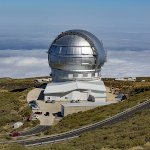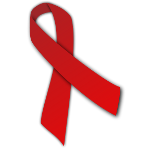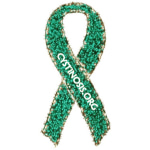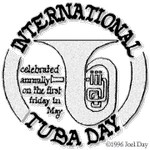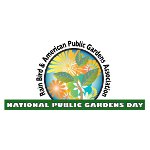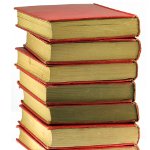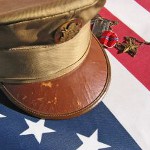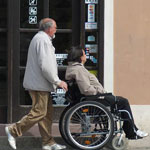Holidays Calendar for May 7, 2021
Defender of the Fatherland Day is a public holiday in Kazakhstan celebrated annually on May 7. It honors the former and current members of the country’s armed forces.
International Day of Planetariums, formerly known as International Day of Planetaria, is celebrated annually on May 7. It was inaugurated by the Italian Association of Planetaria (IAP), and is sponsored by the International Planetarium Society.
Bladder Cancer Awareness Day is observed annually on May 7, during World Bladder Cancer Awareness Month. It is a global campaign created to shed light on one of the most common types of cancer that affects more than 1.6 million people globally.
World AIDS Orphans Day is observed annually on May 7. It is a grassroots campaign that aims to draw attention to millions of children orphaned by AIDS and advocate on their behalf.
Kids’ Athletics Day is observed on May 7 every year. It was created by World Athletics – the international governing body for the sport of athletics – to get children and young people active and encourage them to participate in athletics.
Cystinosis Awareness Day is observed annually on May 7. It was created to educate the public about a rare disease that can affect the kidneys, eyes, and other organs and tissues in the body.
Sauvignon blanc is one of the most iconic wine grape varieties, so it is not surprising that winemakers and wine lovers celebrate a holiday dedicated to it. International Sauvignon Blanc Day is observed annually on the first Friday of May.
International Tuba Day is celebrated annually on the first Friday in May. The holiday was created to dispel the negative stereotypes about the tuba and tuba players and to highlight the special role of the tuba in the brass family.
Radio Day is an observance dedicated to the invention of radio. It is celebrated on May 7 in Russia (as Communication Workers' Day), some other post-Soviet republics and Bulgaria (as Radio and Television Day).
National Public Gardens Day is an annual observance that is held on the Friday before Mother's Day (the second Sunday in May). It was inaugurated by the Pennsylvania-based American Public Gardens Association in collaboration with Rain Bird Corporation.
Lithuanian Press Restoration, Language and Book Day is observed on May 7. It commemorates the lifting of the Lithuanian press ban in 1904.
Dien Bien Phu Victory Day is observed in Vietnam on May 7. It marks the victory of Vietnam over French forces in 1954, which influenced the negotiations over the future of Indochina during the Geneva Conference.
May 7 is National Roast Leg of Lamb Day. Today you could make any kind of dish, but we recommend you roast lamb, as far as this is the best way to cook it.
May 7 is a great day to go out with friends and enjoy an iconic cocktail because it is National Cosmopolitan Day. It is one of the many fun holidays created by freelance writer and editor Jace Shoemaker-Galloway, nicknamed the “Queen of Holidays”.
Military Spouse Appreciation Day (also Military Spouse Day) is an annual observance, honoring military spouses and their importance for all American servicemen. This observance is held annually on Friday before Mother's Day.
National Barrier Awareness Day is observed on May 7 each year. Its main goal is to raise awareness of the barriers, both physical and metaphorical, that disabled people have to face on a daily basis.
National Child & Youth Mental Health Day is observed in Canada on May 7 every year. It was created to help young people build connections with the caring adults in their life and remind them that their mental health matters.
Working Mothers Day is observed annually on the Friday before Mother’s Day. It was created to celebrate the 70% of women with minor children who work, be it full-time or part time, in an office, from home or in another setting.
Festivals for May 7, 2021
- FEST (Belgrade International Film Festival) in Belgrade, Serbia
- Rochester Lilac Festival in Rochester (NY), USA
- Brussels Book Fair in Brussels, Belgium
- Festival Accès Asie in Montreal, Canada
- Georgia Renaissance Festival in Fairburn, USA
- Oklahoma Renaissance Festival in Muskogee, USA
- International Short Film Festival Oberhausen in Oberhausen, Germany
- Tulip Time Festival in Holland, USA
- Palo de Mayo in Bluefields, Nicaragua
- Brighton Festival in Brighton, United Kingdom
- Batabano Carnival in George Town, Cayman Islands
- CPH:DOX Film Festival in Copenhagen, Denmark
- Bay Area Renaissance Festival in Dade City, USA
- Chartres en lumières (Chartres in Lights) in Chartres, France
- Scarborough Renaissance Festival in Waxahachie, USA
This Day in History
- 2024 Died: Steve Albini, American musician and audio engineer. He founded and fronted the influential post-hardcore and noise rock bands Big Black, Rapeman and Shellac, and engineered many acclaimed albums.
- 2011 Died: Willard Boyle, Canadian physicist, Nobel Prize laureate for the invention of an imaging semiconductor circuit - the CCD sensor.
- 2007 Israeli archaeologists discovered the tomb of Herod the Great south of Jerusalem. Herod the Great was described as a madman who murdered his own family and a great many of rabbis.
- 2004 American freelance radio-tower repairman Nick Berg was beheaded by Islamist militants in Iraq. The decapitation video was released on the internet.
- 2002 China Northern Airlines Flight 6136 from Beijing to Dailan, China plunged into the Yellow Sea. All 103 passengers and 9 crew members died.
- 1998 Died: Eddie Rabbitt, American singer-songwriter and guitarist. His songs were sung by Elvis Presley ("Kentucky Rain"), Ronnie Milsap ("Pure Love"), and other famous singers.
- 1998 The largest industrial merger in history: Mercedes-Benz bought Chrysler for $40 billion USD to form DaimlerChrysler AG.
- 1992 Born: Alexander Ludwig, Canadian actor and and country musicians. He is known for starring as Cato in The Hunger Games and Björn Ironside in Vikings.
- 1992 The space shuttle Endeavour was launched on its first mission STS-49. The goal of the mission was to retrieve an Intelsat VI satellite, attach it to a new upper stage and relaunch it to its intended geosynchronous orbit.
- 1987 Born: Maya Erskine, American actress, singer and writer. She is known for her roles as Maggie in Man Seeking Woman, Mikki in Betas, and Mizu in Blue Eye Samurai.
- 1986 Canadian mountain climber Patrick Morrow became the first person to climb the Seven Summits, seven highest mountains of each seven continents.
- 1966 Died: Stanisław Jerzy Lec, Polish poet and aphorist, one of the greatest writers of post-war Poland. He is known for lyrical poetry and skeptical philosophical-moral aphorisms, often with a political subtext.
- 1964 A suicidal passenger shot the pilot and co-pilot of Pacific Air Lines Flight 773 en route from Reno to San Francisco, USA. The aircraft crashed near San Ramon, California; all 44 people aboard died.
- 1951 Died: Warner Baxter, American actor and singer, best remembered for his role as The Cisco Kid in In Old Arizona. He frequently played charismatic Latin bandit types in westerns.
- 1946 Tokyo Telecommunications Engineering was founded with around 20 employees. The enterprise later changed its name to the present-day Sony.
- 1931 Born: Gene Wolfe, American science fiction and fantasy writer, noted for his dense and allusive prose and strong influence of the Catholic faith. He is most famous for The Book of the New Sun.
- 1920 Soviet Russia recognized the independence of the Democratic Republic of Georgia only to invade it six months later.
- 1919 Born: Eva Perón, known by the nickname Evita, Argentine politician, activist, actress, and philanthropist who served as First Lady of Argentina from June 1946 until her death in July 1952.
- 1909 Born: Edwin H. Land, American scientist and inventor, the co-founder of the Polaroid Corporation. He is remembered for his numerous inventions in the photography industry.
- 1902 Died: Agostino Roscelli, Italian priest and saint. Roscelli is known for inspiring social changes in Genoa, Italy for children and disadvantaged women. Pope John Paul II canonized him in 2001.
- 1901 Born: Gary Cooper, American actor and singer, a major star movie from the end of the silent film era through the end of the Golden Age of Classical Hollywood.
- 1867 Born: Władysław Reymont, Polish author, Nobel Prize laureate for his great national epic The Peasants.
- 1861 Born: Rabindranath Tagore, Bengali polymath who was active as a poet, writer, playwright, composer, philosopher, social reformer, and painter during the age of Bengal Renaissance.
- 1840 Died: Caspar David Friedrich, German painter who generally considered the most important German artist of his generation. He is best known for his mid-period allegorical landscapes.
- 1840 Born: Pyotr Tchaikovsky, renowned Russian composer of the Romantic period. He was the first Russian composer whose music made a lasting impression internationally.
- 1840 The second deadliest tornado in the history of the US: the Great Natchez Tornado struck Natchez, Mississippi. 317 people were killed.
- 1833 Born: Johannes Brahms, German composer and pianist. He is often considered both a traditionalist and an innovator. Brahms worked in almost all genres except opera, and created more than eighty diverse compositions.
- 1825 Died: Antonio Salieri, Italian composer and conductor, a pivotal figure in the development of the late18th-century opera.
- 1824 The Ninth Symphony by Ludwig van Beethoven premiered in Vienna, Austria. The performance was conducted by Michael Umlauf under the composer's supervision.
- 1812 Born: Robert Browning, English poet. His mastery of dramatic verse made him one of the foremost Victorian poets.
- 1800 Died: Niccolò Piccinni, Italian composer. Piccinni is somewhat obscure even to modern music lovers, however, he was one of the most popular composers of opera of his day.
- 1748 Born: Olympe de Gouges, French playwright and political activist, whose feminist and abolitionist writings reached a large audience. De Gouges is known as one of the earliest feminists in France.
- 1667 Died: Johann Jakob Froberger, German organist and composer. Among the most famous composers of the era, he was influential in developing the musical form of the suite of dances in his keyboard works.
- 1523 Died: Franz von Sickingen, German knight, one of the most notable figures of the first period of the Protestant Reformation.

